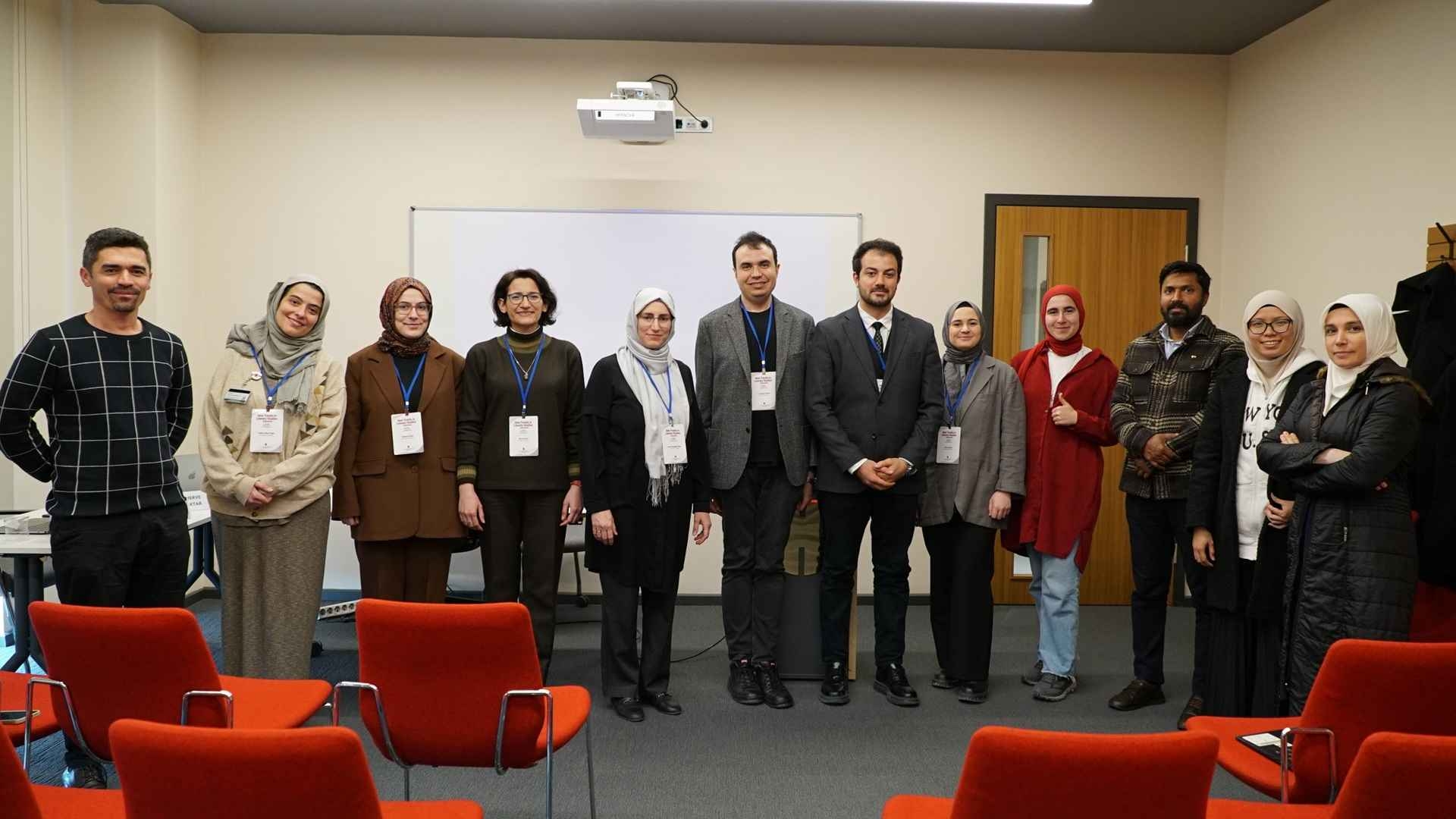


The symposium titled ‘New Trends in Literary Studies’, organised by the IHU Department of Comparative Literature on 8 April 2025, brought together academics and students to discuss current trends in the field of literature. With contributions from scholars at our university and various universities, the symposium offered a comprehensive discussion venue on the transformative impact of technological advancements and ecological approaches on literature within the framework of posthumanism.
The event began with the keynote speech by Assoc. Prof. C. Ceyhun Arslan from Koç University’s Department of Comparative Literature, titled “Canons and the Future of Comparative Literature: The Multilingual Ottoman Ocean as a Case Study.” This was followed by the first panel, Posthumanism: Networking Nature, Body and the Divine, moderated by Assist. Prof. Emine Hoşoğlu Doğan, Chair of the Comparative Literature Department. In this session, Rajeev Kumar and İrem Ak revisited the relationship between humans, nature, and machines through a posthumanist lens.
The second panel, Reimagining Literary Futures with Artificial Intelligence, was moderated by Assist. Prof. Merve Aktar from the Comparative Literature Department. The panel opened with an engaging presentation by Assoc. Prof. Nagihan Haliloğlu from Boğaziçi University, titled “Readability and World Literature,” in which she examined the intersections between artificial intelligence and world literature. The session continued with presentations by Hatice Kübra Yeğin and Rumeysa Oğuz, who discussed the transformative role of artificial intelligence in literary representation and genre.
The final panel of the day, Digitalization in Literary Studies: Reconstruction, Analysis, and Visualization, was moderated by Assist. Prof. Mehmet Akın Bulut from the Educational Sciences Department. This session focused on how digital tools are reshaping literary studies. Zehra Yedidal presented on the reconstruction of ancient texts using digital technologies, followed by Prof. Frederic Spagnoli from the University of Franche-Comté, who delivered a compelling presentation on the analysis and visualization of travelogues from the 16th to the 19th centuries through digital tools. The panel concluded with Assist. Prof. Merve Aktar’s presentation, which explored how digitalization has transformed the practice of close reading into distant reading in the context of literary criticism.
The symposium concluded with a brief closing discussion, marking a productive academic event that offered multifaceted insights into emerging approaches and digital transformations in the field of literature.